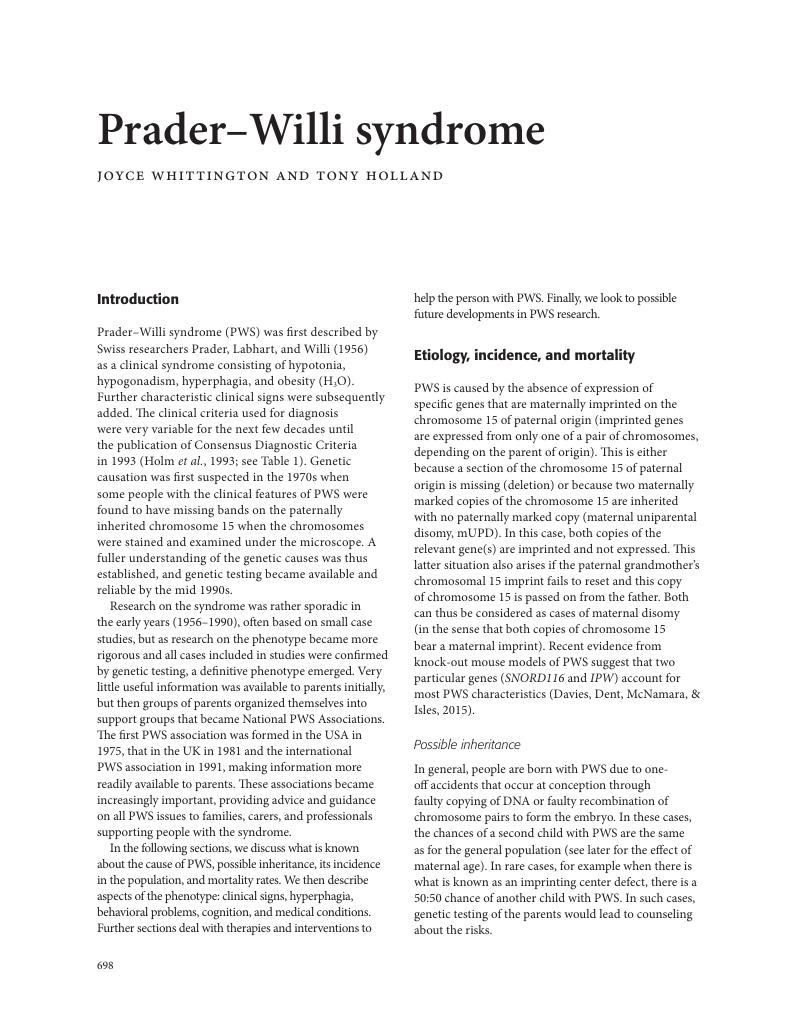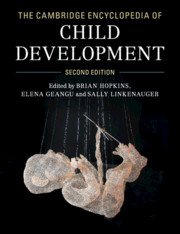Book contents
- The Cambridge Encyclopedia of Child Development
- Child Development
- Copyright page
- Dedication
- Contents
- Contributors
- Editorial preface
- Foreword
- Acknowledgments: External Reviewers
- Introduction Study of child development: an interdisciplinary enterprise
- Part I Theories of development
- Part II Methods in child development research
- Part III Prenatal development and the newborn
- Part IV Perceptual and cognitive development
- Part V Language and communication development
- Part VI Social and emotional development
- Part VII Motor and related development
- Part VIII Postnatal brain development
- Part IX Developmental pathology
- Resilience and vulnerability
- Classification of developmental disorders and diseases
- Behavioral and learning disorders
- Attention deficit hyperactivity disorder
- Autism
- Cerebral palsies
- Child and adolescent depression
- Childhood epilepsy
- Developmental coordination disorder
- Down’s syndrome
- Dyscalculia
- Dyslexia
- Fetal alcohol spectrum disorders
- Fragile X syndrome
- Hearing disorders
- Prader–Willi syndrome
- Prematurity and low birthweight
- Prolonged infant crying and colic
- Sudden infant death syndrome
- Visual impairments
- Williams syndrome
- Part X Crossing the borders
- Part XI Speculations about future directions
- Book part
- Author Index
- Subject Index
- Plate Section (PDF Only)
- References
Prader–Willi syndrome
from Part IX - Developmental pathology
Published online by Cambridge University Press: 26 October 2017
- The Cambridge Encyclopedia of Child Development
- Child Development
- Copyright page
- Dedication
- Contents
- Contributors
- Editorial preface
- Foreword
- Acknowledgments: External Reviewers
- Introduction Study of child development: an interdisciplinary enterprise
- Part I Theories of development
- Part II Methods in child development research
- Part III Prenatal development and the newborn
- Part IV Perceptual and cognitive development
- Part V Language and communication development
- Part VI Social and emotional development
- Part VII Motor and related development
- Part VIII Postnatal brain development
- Part IX Developmental pathology
- Resilience and vulnerability
- Classification of developmental disorders and diseases
- Behavioral and learning disorders
- Attention deficit hyperactivity disorder
- Autism
- Cerebral palsies
- Child and adolescent depression
- Childhood epilepsy
- Developmental coordination disorder
- Down’s syndrome
- Dyscalculia
- Dyslexia
- Fetal alcohol spectrum disorders
- Fragile X syndrome
- Hearing disorders
- Prader–Willi syndrome
- Prematurity and low birthweight
- Prolonged infant crying and colic
- Sudden infant death syndrome
- Visual impairments
- Williams syndrome
- Part X Crossing the borders
- Part XI Speculations about future directions
- Book part
- Author Index
- Subject Index
- Plate Section (PDF Only)
- References
Summary

- Type
- Chapter
- Information
- The Cambridge Encyclopedia of Child Development , pp. 698 - 704Publisher: Cambridge University PressPrint publication year: 2017



